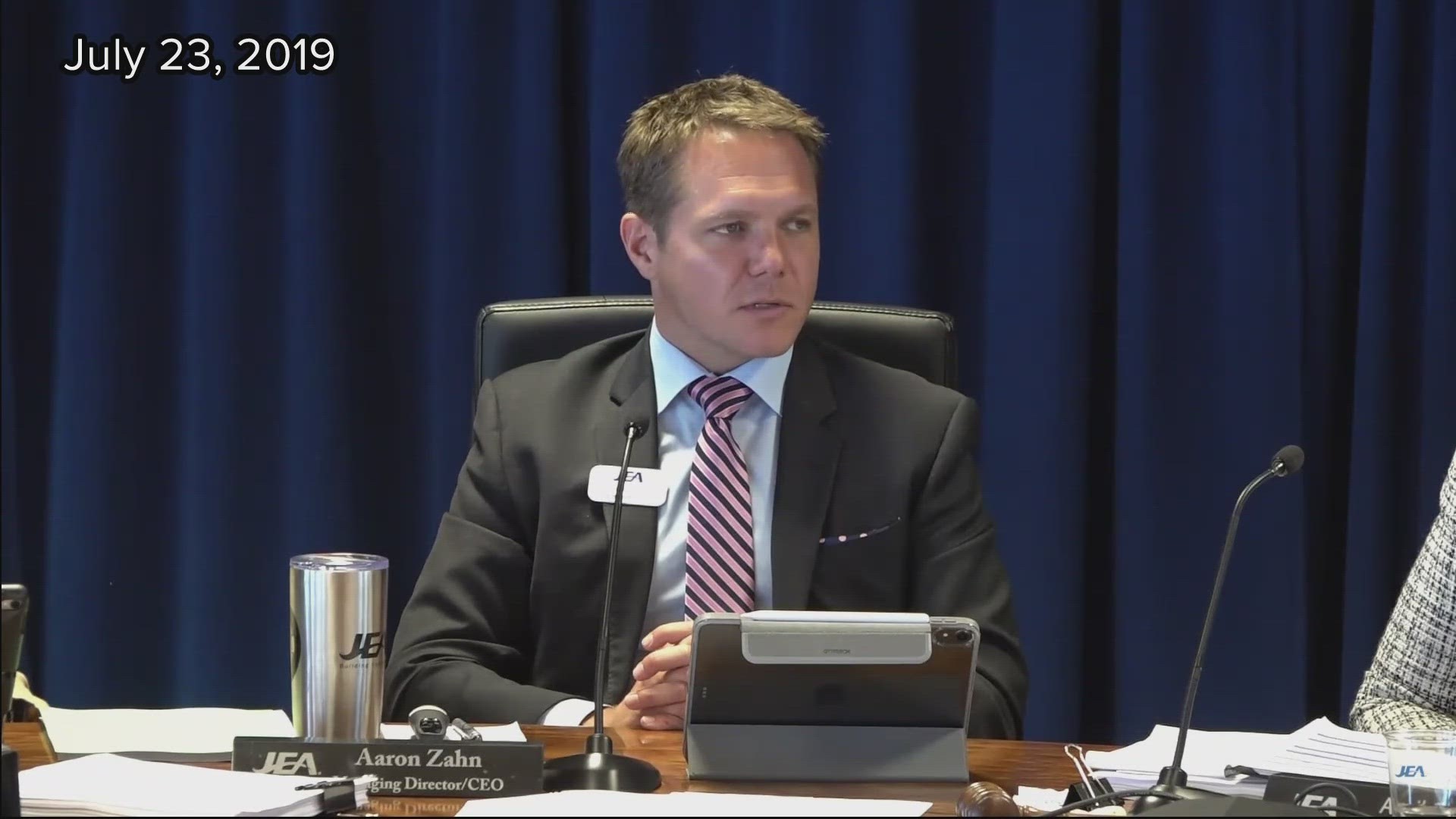JACKSONVILLE, Fla. — The utility is publicly owned and the reasons for the criminal charges against two former JEA execs are publicly known, however, the two men charged in the scandal want to keep the public out of upcoming hearings in their corruption and wire fraud case.
Attorneys for former CEO Aaron Zahn and former CFO Ryan Wannemacher are asking a federal judge to close the courtroom to the public (and, by extension, the media) for significant portions of what is expected to be a multi-day hearing. They say the judge “should take steps to ensure that the Kastigar hearing does not exacerbate the harm caused by the prior publicity of the defendants’ compelled statements.”
The "compelled statements" were made when the two men were called by Jacksonville City Councilmembers and the city’s General Counsel to discuss the origins of a scheme one former city attorney called “perhaps the greatest fraud in Jacksonville history.”
A 2022 indictment said the men conspired to extract millions of dollars from the publicly owned utility by creating and then purchasing “performance units,” whose value would soar when JEA was sold – a transaction that was all but a done deal before the scandal broke.
What is unusual about the new request – aside from the fact that courtrooms are presumptively open and accessible to all – is that both attorneys concede the information they want to shield has already been disclosed.
“The Defendants’ compelled statements were widely disseminated and have been the subject of extensive publicity since shortly after they were provided,” the brief says. “Since the Defendants were indicted, virtually every development in the case has become a source of news and social media coverage.”
“Stemming the tide of publicity ... may be too little, too late,” the motion concedes, but the court should try nonetheless.
The purpose of a Kastigar hearing is “to determine if the government has introduced testimony before the grand jury, or plans to introduce testimony at trial" based on the compelled statements. Doing so would violate the defendants' Fifth Amendment protections as well as their Garrity rights, which “protect public employees from being compelled to incriminate themselves during investigatory interviews conducted by their employers.”
That means prosecutors can't derive any part of their case from compelled statements, or use them as an investigative lead. However, the defense believes those statements have fatally “tainted” the prosecution, government witnesses and grand jurors.
“In light of the extensive media coverage of the defendants’ compelled statements, it’s unclear how members of the prosecution team could have 'avoided' articles pertaining to them short of shunning all media, a step the prosecution team did not take,” the motion reads.
Prosecutors have said they did not rely on the compelled statements in building their case. In any case, those statements may not have much prosecutorial value since Zahn and Wannemacher maintained their ignorance of the value of the scheme at the root of the criminal charges.
But keeping that information from prosecutors during the Kastigar hearing is a priority for Zahn and Wannemacher's lawyers, to the extent that they even want prosecutors to leave the courtroom during some witness testimony.
Jacksonville First Amendment Attorney Jennifer Mansfield objects to the courtroom closure in principle: “All courts, state and federal, are presumptively open to the public and the press.”
But she also objects to the closure in practical terms.
"One of the bases for the motion is there has already been a lot of publicity about the exact statements that they’re seeking to exclude from evidence and use at the trial," she told First Coast News. "It’s kind of like shutting the barn door after the horse has gotten out, right? They don’t want more publicity, but it’s stuff that’s already out in the public.”
The government has not yet responded to the brief, which was filed Tuesday. The Kastigar hearing is set to begin May 9 and expected to last at least three days.
-

